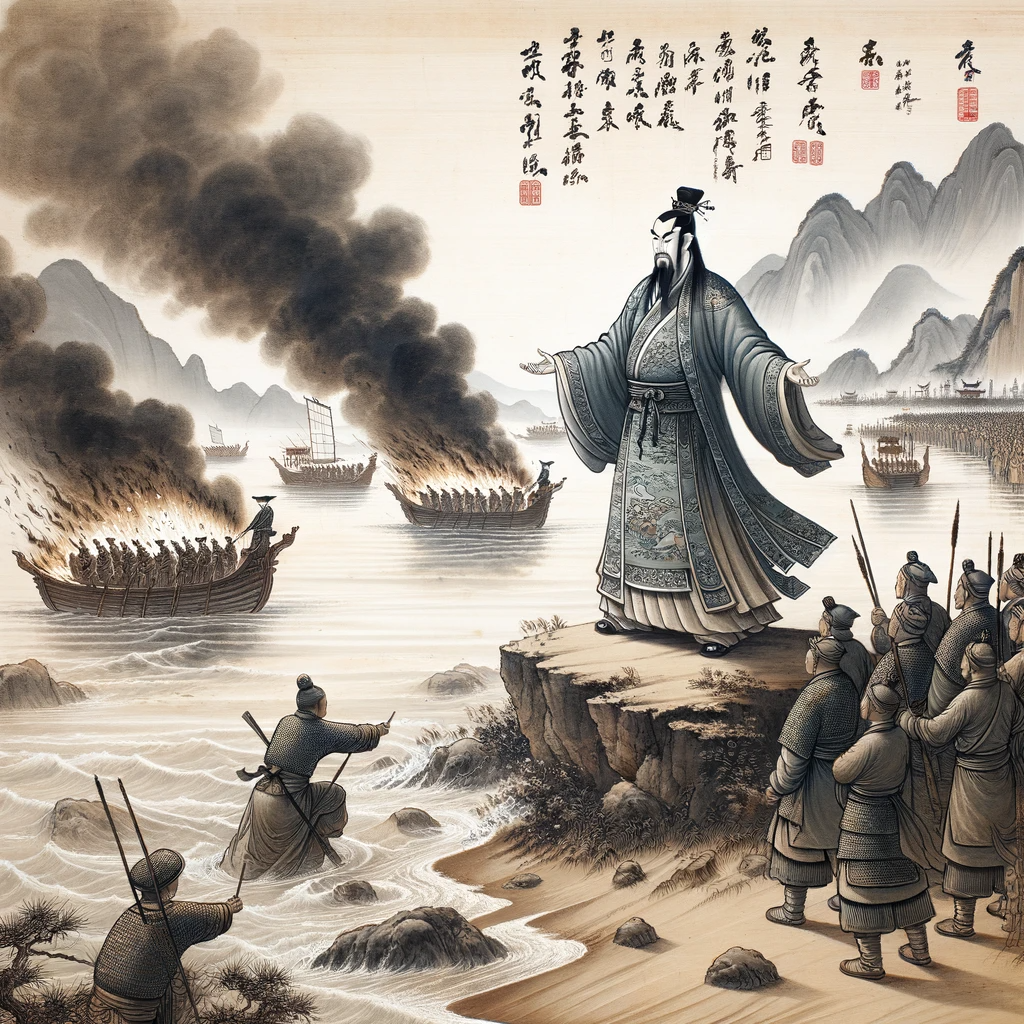In the realm of business leadership, the phrase “burn the boats” is often employed to convey edginess and to inspire total commitment to new initiatives. However, many leaders misunderstand the essence of this powerful metaphor. The original concept, as articulated by Sun Tzu, states: “At the critical moment, the leader of an army acts like one who has climbed up a height and then kicks away the ladder behind him. He carries his men deep into hostile territory before he shows his hand. He burns his boats and breaks his cooking-pots; like a shepherd driving a flock of sheep, he drives his men this way and that, and nothing knows whither he is going.”
There are crucial insights to be gleaned here. Firstly, the leader initiates the act of burning the boats, eliminating any means for the team to retreat or even sustain themselves in a traditional sense. This strategy transcends mere commitment; it places the team in a situation where their survival hinges on the success of their mission. Notably, the leader is not exempt – as Sun Tzu emphasizes, he burns his own boats and cooking-pots, fully sharing in the risks and consequences.
Watch my video on “Burn the Boats” here
Furthermore, this approach underscores the delicate balance in leadership between transparency and decisiveness. Leaders often struggle with the extent of explaining their strategies. While transparency is valuable, there comes a point where decisive leadership must take precedence, guiding the team toward a unified direction based on a clear vision. Without this, a team may become mired in conflicting agendas and lose focus.
Sun Tzu elaborates: “Throw your soldiers into positions whence there is no escape, and they will prefer death to flight. If they will face death, there is nothing they may not achieve. Officers and men alike will put forth their utmost strength. Soldiers in desperate straits lose the sense of fear. If there is no place of refuge, they will stand firm. If they are in hostile country, they will show a stubborn front. If there is no help for it, they will fight hard.”
This perspective might seem extreme, but that’s precisely the point. In dire circumstances, when all avenues of retreat are closed, fear dissipates, and people stand their ground with unwavering resolve. The essence of “burning the boats” isn’t merely about convincing the team to commit; it’s about transforming their perception of the situation to one where fear of failure is overshadowed by the necessity of success.
As Sun Tzu concludes: “It is the soldier’s disposition to offer obstinate resistance when surrounded, to fight hard when he cannot help himself, and to obey promptly when he has fallen into danger.”
This brings us to a pivotal question for leaders and individuals alike: Do you genuinely believe in your course of action to the extent that you would “burn your boat and your cooking pot”? Are you prepared to lead yourself and those around you into such dire circumstances that your only option is to fight with everything you have? This is the profound challenge posed by Sun Tzu’s words. It begs one to ponder whether those who casually use the phrase “burn the boats” truly grasp its profound implications.




